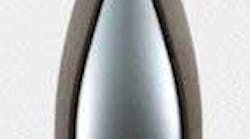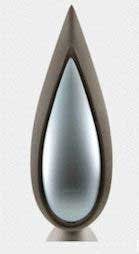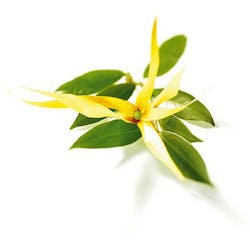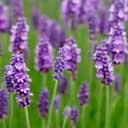Use of essential oils to reduce anxiety in the dental office
Direct palm inhalation is another great method to benefit from essential oils. Place one or two drops of oils in the palm of your hand, rub in a circular motion. Cup your hands over your nose and inhale the aroma. I do not recommend health food store oils as they can be toxic due to the chemicals used to extract them. If I have a patient that is anxious, I like to diffuse lavender, orange or oil called Peace & Calming. Peace & Calming contains tangerine, orange, ylang ylang, patchouli and blue tansy.
A study was done using orange and lavender oils at the University Clinic of Neurology, Medical University of Vienna, Austria.(3) They tested the effects of inhaling essential oils while waiting for a dental procedure. The goal of the study was to examine the impact of the essential oils of orange and lavender on anxiety, mood, alertness and calmness in dental patients.
Two hundred patients between the ages of 18 and 77 years, with equal numbers of women and men, were assigned to one of four independent groups. While waiting for dental procedures patients were either stimulated with ambient odor of orange or ambient odor of lavender. These conditions were compared to a music condition and a control condition (no odor, no music). Anxiety, mood, alertness and calmness were assessed while patients waited for dental treatment.
Statistical analyses revealed that compared to control condition both ambient odors of orange and lavender reduced anxiety and improved mood in patients waiting for dental treatment. These findings support the opinion that odors are capable of altering emotional states and may indicate that the use of odors is helpful in reducing anxiety in dental patients.
Another study showed that lavender aromatherapy has the potential to ease anxiety in patients undergoing minimally invasive facial cosmetic procedures.(4) In Japan in a 2007 study, researchers demonstrated that smelling lavender and rosemary oils for five minutes decreased cortisol levels.(5) Free radicals/reactive oxygen species are related to many biological phenomena such as inflammation, aging, and carcinogenesis. Free radical scavenging activity (FRSA) is a protective mechanism that can be measured in saliva. The results of this study shed light on the fact that lavender and rosemary enhance FRSA and decrease the stress hormone, cortisol, which protects the body from oxidative stress.(5)
Another study had similar results, showing decreased cortisol levels after smelling lavender for ten minutes.(6) A Kings College, London, study involved a group of dental patients waiting for treatment.(7) Part of the group inhaled lavender oil, the others oil with no odor. The lavender group reported feeling less anxious than the other group. The conclusion was, that although anxiety about future dental visits seems to be unaffected, lavender scent reduces state anxiety in dental patients, and that lavender was an effective "on the spot” treatment to reduce anxiety in dental patients.
The use of essential oils in the dental or dental hygiene office can be very helpful to your patients. Please be aware of the potential safety issues and the chemical properties of the oils you choose to use in the office. Aromatherapy is not the same as enhancing the atmosphere of a clinical setting with smells of commercial air fresheners, spices, potpourri, scented candles, or other nice-smelling items. Aromatherapy involves scientific use of pure essential oils to enhance psychological and physical well-being, such as calming effects to enhance the patient experience. Educate yourself and use essential oils safely and effectively.
References 1. Kalemba D, Kunicka A. Antibacterial and antifungal properties of essential oils. Curr Med Chem. 2003 May; 10(10):813-29. http://www.ncbi.nlm.nih.gov/pubmed/12678685. 2. National Cancer Institute. Aromatherapy and Essential Oils (PDQ). Health Professional Version. http://www.cancer.gov/cancertopics/pdq/cam/aromatherapy/healthprofessional/page1/AllPages/Print. 3. Lehrner J, Marwinski G, Lehr S, Johren P, and Deeck L. Aromatherapy: Ambient Odors of Orange and Lavender Reduce Anxiety. Physiology & Behavior, Volume 86, Issues 1–2, 15 September 2005, Pages 92-95. http://www.sciencedirect.com/science/article/pii/S0031938405002660 and http://www.bio-medicine.org/medicine-news/Aromatherapy-3A-Ambient-odors-of-orange-and-lavender-reduce-anxiety--5180-1/. 4. Grunebaum LD, Murdock J, Castanedo-Tardan MP, Baumann LS. Effects of lavender olfactory input on cosmetic procedures. J Cosmet Dermatol. 2011 Jun; 10(2):89-93. doi: 10.1111/j.1473-2165.2011.00554.x. 5. Atsumi T, Tonosaki K. Smelling lavender and rosemary increases free radical scavenging activity and decreases cortisol level in saliva. Psychiatry Res. 2007 Feb 28; 150(1):89-96. Epub 2007 Feb 7. http://www.ncbi.nlm.nih.gov/pubmed/17291597. 6. Toda M, Morimoto K. Effect of lavender aroma on salivary endocrinological stress markers. Arch Oral Biol. 2008 Oct; 53(10):964-8. doi: 10.1016/j.archoralbio.2008.04.002. Epub 2008 Jul 16. http://www.ncbi.nlm.nih.gov/pubmed/18635155. 7. Kritsidima M, Newton T, Asimakopoulou K. The effects of lavender scent on dental patient anxiety levels: a cluster randomised-controlled trial. Community Dent Oral Epidemiol. 2010 Feb; 38(1):83-7. doi: 10.1111/j.1600-0528.2009.00511.x. Epub 2009 Nov 23. http://www.ncbi.nlm.nih.gov/pubmed/19968674.Tawnya (on left) and Tristan
Tawnya Bobst, RDH, BS, lives in Melbourne Florida, and is currently completing a course to become a certified aroma therapist. Tawnya works as a dental hygienist and raises toy poodles for show. Please visit www.tawnyasessentialoils.weebly.com for more information on essential oils.
To read more about essential oils, click here and here.











